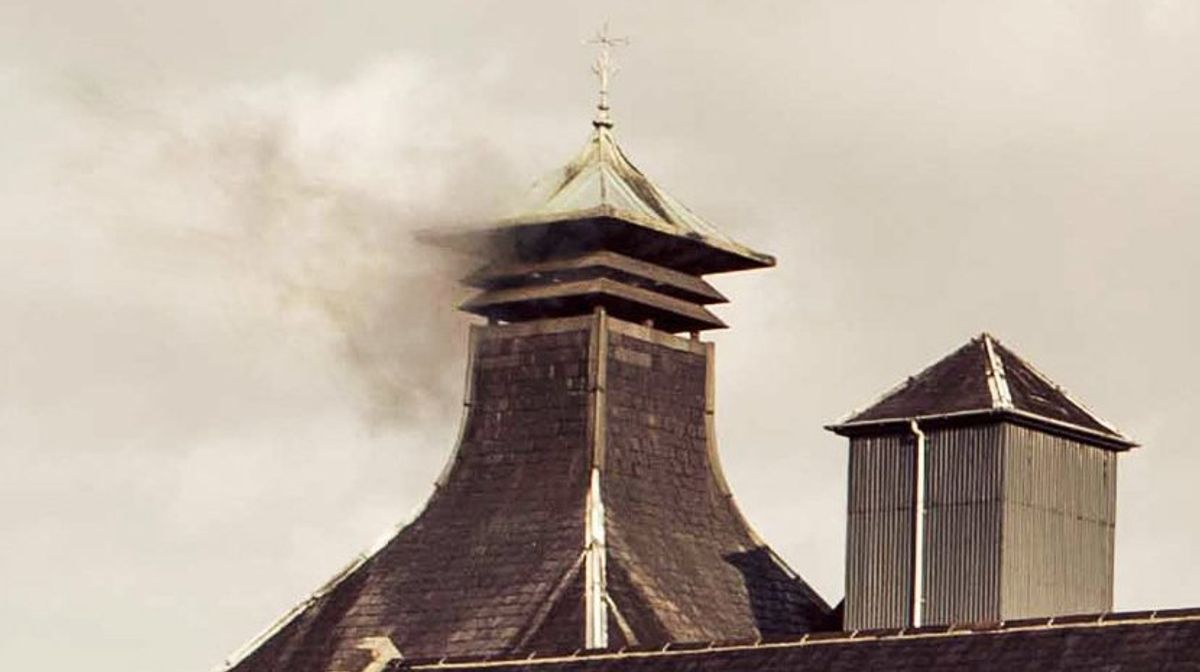
Where peat comes into the malting process
Today, distilleries largely rely on commercially malted barley. In days gone by, however, they necessarily had to malt their own. Malting makes the starches within barleycorns soluble so that the sugars may be converted into alcohol. In other words, malting tricks barleycorns into thinking spring has come. Barleycorns are steeped in water and allowed to germinate before the process is halted in the kiln.
When peat is burned to heat the kiln, it also produces an especially aromatic smoke. To a point, this smoke has a considerable influence on malt during kilning, imbuing it with compounds called ‘phenols‘. Typical flavours include tar, ash, iodine and smoke.
With introduction of coal,by continuation, coke has eventually lead many distillers to convert to tap into the potential of un-peated whsky
Islay to the west, Orkney to the north and several mainland distilleries held on to peated tradition. These distillers continued to use varying proportions of peat during the kilning process. This maintains a traditional and now largely unique style of whisky with lots of variation and flavour. And those which still have their own maltings such as Laphroaig on Islay, Highland Park in Orkney and even Balvenie in Speyside go one step further by peating relatively small quantities of barley for their own use.
Article taken from: https://www.worldwhiskyday.com/what-is-peated-whisky/




